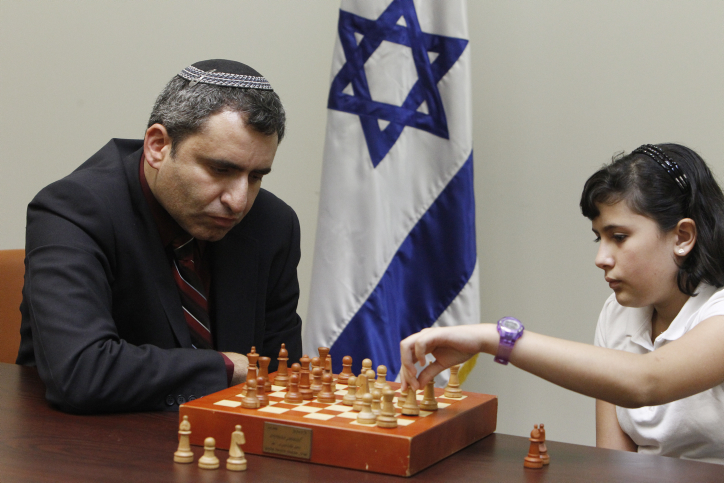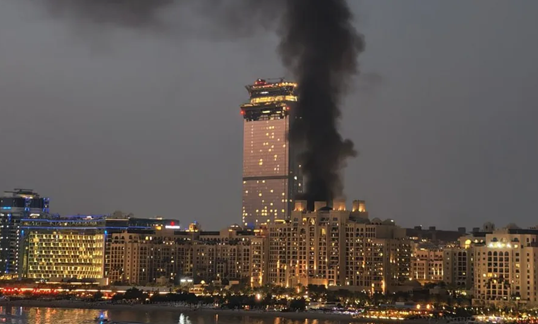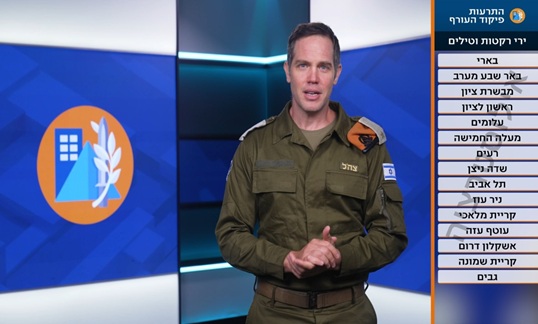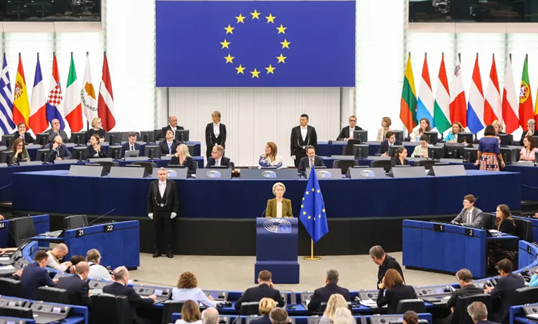A talk with Deputy Foreign Minister Zeev Elkin on identity, diplomacy and a bit of economics.
The Jews of the Disapora and Israel have a common interest in cultivating mutual ties: Israel will gain loyal ambassadors of hasbara, and the Diaspora will have a focal point for preserving their identity • While some of the Jews in the Diaspora are working for Israel, for others Jewish identity actually translates into criticism and struggle against the State • A talk with Deputy Foreign Minister Zeev Elkin on identity, diplomacy and a bit of economics

Against the background of the release of terrorists and the ongoing Iranian nuclear saga, we sat down to get to know Elkin the man – the son of a secular family who rediscovered his Judaism, the future Soviet mathematician who ended up studying Jewish history, and the expert chess player who has shown himself to be a wily political fox.
Let’s start from the beginning: how did you become a Zionist and develop a Jewish identity?
For me, both identities came at the same time. My Zionist identity developed in tandem with my Jewish one, to the point that I don’t know how to separate them. All of it really started in high school, when the Soviet regime was still strong and dealing with Jewish issues was done underneath the surface. In the beginning I studied Hebrew with photocopied textbooks smuggled into the Soviet Union. I started to learn Hebrew on my own and listen to recordings of Israeli music.
You need to understand where I came from. There was a very large Jewish community where I grew up [Kharkov – tr.] – more than a hundred thousand people – which was visibly represented among the local intellectual elite. Jews were usually scattered among the different schools, so that the concentration of Jews in each school was very low. But I was lucky in that they decided that I would study in a Mathematics high school, which concentrated children gifted in math and physics throughout the city. This created an uncommon concentration of Jews at the school, to the point that some 35 of the 40 students in my class were Jews. So my social environment at this stage was pretty Jewish.
During this period, I was also exposed to the subject of aliya refuseniks who were concentrated in St. Petersburg through one of the girls in the class who was part of those circles. During a school trip in the city, I managed to get away for a bit, and meet with them; they exposed me to additional material and relevant contacts.
I can’t really separate the four things which developed in me parallel to each other: Jewish identity, Hebrew studies, Zionism and Judaism as religion. All these four components developed in me at the same time in a lengthy process.

What about books and thought? Were you exposed at this stage to literature or thinkers who affected you?
As far as books go, there were none, and I paradoxically drew much of my knowledge from Soviet literature which was the most accessible. Even though it was mostly propaganda, I could sometimes learn some facts. Occasionally, I could get some information from that.
Other materials that helped were atheist publications directed against Judaism or anti-Israeli and anti-Zionist literature which was a source of a lot of information. A friend of my parents collected this literature and gave it to me. Aside from that, there were very few photocopied underground books that I managed to get a hold of.
There was also literature which told of Israel and Judaism which affected me. In high school I was a big fan of “The Judean War” by Leon Feuchtwanger, a famous German-Jewish author who wrote a historic novel on the basis of the Josephus, which was fairly popular in Europe and also translated into Russian. It’s a story that raises questions of Jewish identity as opposed to general identity, revolving around the torn character of Josephus, something that really spoke to me at that stage. At that stage Zionist thought mostly didn’t reach me.
What was the next stage in your development?
Around 1988, when I started learning in university, the gates out of Russia were opened and Jewish Studies were finally openly allowed. At the same time some courses in Judaism were opened in the university. At first it was Yiddish studies and later Hebrew was added as well. After a few months as a student I temporarily subbed for the teacher, and afterwards they sent me to a Hebrew teachers’ seminar. That’s where my process of return to religion started in earnest as well as my Zionist discovery.
At this stage I already read a lot – both Jewish and Zionist thought. There were many such books printed in the Soviet Union then. The seminar also had a large Jewish library. In that period I read a lot of Jabotinsky, and when it came to Jewish thought Buber attracted me.
I returned from the seminar as a Hebrew teacher and I received a certificate as a Diaspora Hebrew teacher from Avshalom Kor. I became the head of the Hebrew Teacher’s Association in my city, and then I became the deputy head of the Jewish community and the General Secretary of Bnei Akiva in the country. This was a period of Jewish flowering: when I left the city the Hebrew Learners’ Association numbered 60 students, but when I came back and headed the organization there were already 3,000. Because the US closed its doors, those who left Russia turned to Israel and there was a tremendous demand for Hebrew.
Because of the vacuum that resulted from the aliya of the older generation, I became a significant figure in the Jewish community pretty quickly – mainly in the National Religious community – and a certain stage I became the Soviet Jewry’s contact person with National Religious bodies in the country. In the final months before I came to Israel I worked on establishing a Mizrahi branch in the former Soviet Union and I corresponded with then General Secretary of Mizrahi Yitzhak Levi on the matter.
Since more than half of the Russian Jewish leadership from the underground and Galsnost periods were identified with Religious Zionism, I argued that if they managed to found something organized that would work as a bridge, they could attract significant numbers of Russian Jewish immigrants in their direction. In my opinion, this is the biggest missed opportunity of Religious Zionism, which invested the most in immigrant absorption, but didn’t see any political dividends from it.

Let’s fast forward to today and your job as Deputy Foreign Minister. Do you feel the connection between Jewish identity and support for Israel in other places in the world such as among US Jewry?
Of course there’s a connection but it’s not inevitable. In the world of American Jewry it’s possible to be identified as an Orthodox but anti-Zionist Jew or have a liberal Jewish identity which contains a very critical attitude towards Israel; some of this even sets the tone in the American government. So I don’t see an unequivocal connection between Jewish identity and support for Israel.
The issue is that someone with a Jewish identity usually can’t be neutral towards the state of Israel – he’s either supportive or very critical. So the same emotions that can be invested in support for Israel are invested in resistance, criticism and sometimes an attempt to change things.
There is a change – once communities were asked to support Israel, now some ask Israel to support them.
I think there’s a mutual interest. It’s true that communities once supported Israel. The State was built largely thanks to the support of the Jewish Diaspora. Today, we don’t understand just how much. Even Ben-Gurion who is always seen as an man who dealt with internal Israeli issues spent much of his time abroad, as anyone who reads his correspondence with his wife can see. He would always lengthen the time he spent there or change it. He invested a lot of time cultivating contacts with different communities and through them contacts with the American government.
We don’t sufficiently appreciate Diaspora Jewry’s contribution to the success of the Zionist project both before and after the establishment of the State. One of the things I try to embed here in the Foreign Ministry is the awareness of the need to make use of the Diaspora. It’s an enormous resource which either out of excessive pride or arrogance we decided we can do without and I think that’s a mistake.
How do you think Diaspora Jewry can help us?
We needed Diaspora Jewry’s help in various stages of establishing the state. At first we needed contacts, then weapons and technology, then money for absorption, building, education and so on. The order of the day in terms of Israeli interests is help in the struggle for Israel’s image in the world.
The best demonstration of this problem is the Scandinavian countries. If back in the ‘70s volunteers would come to Israel to work on kibbutzim, today they come to demonstrate with the Palestinians against us. I think that this gives an interesting perspective of this process.
It’s true mainly for Scandinavia but also America. The past few years have seen a deterioration in Israel’s standing there, mainly among certain parts of the elite (including the Jewish one), to the point that once could say that were it not for the Evangelicals our situation there would be as bad as in Europe or close to it. What’s saved us are the Evangelicals and their strengthening of late.
Israel has a clear interest to form a partnership with the Diaspora to face this challenge. This is a partnership in every sense of the word. It’s not just money; it’s also the thought that the Diaspora understands the global situation better. By the nature of things, people who live in those countries understand them better than us.
The interest is mutual. Communities abroad also have an interest in cooperating, because anti-Israelism is today a politically correct expression of anti-Semitism, and therefore what starts as anti-Israelism very often turns into anti-Semitism par excellence. So the community has an interest in protecting itself and to try and confront and uproot the problem.
We’re working now on establishing a common project between the Diaspora communities and the State of Israel which will aim to change Israel’s image and lobby for Israel throughout the world. For me, this is one of the most unused resources for Israel in the world.

To sum up, a subject that you relate to less but which is very interesting given your unique background: what is your social-economic outlook?
Like anyone who came from the Soviet Union, and especially as one who read many of Marx’s and Lenin’s works in his youth, I have a deep and fundamental immunity to various socialistic outlooks, something which immediately places me in the classical-liberal camp.
On the other hand, as a Knesset Member who spent part of his time representing a community which encountered not a few serious social problems, I am aware of the need for the State to solve such problems. Therefore I am not a big fan of the extreme free market approach which says that the state should not play any part in social and national projects, such as absorption, education and others.
When I compare myself to the typical Israeli, I find myself leaning to a more liberal-conservative approach. For instance, I don’t understand the Israeli aversion to intellectual elitism or educational system that sorts out students based on skill such as a school for gifted children. There’s an "equalitarian" streak in Israeli education and I think that’s a major mistake which explains some of the problems of our educational system.
Translated by Avi Woolf




